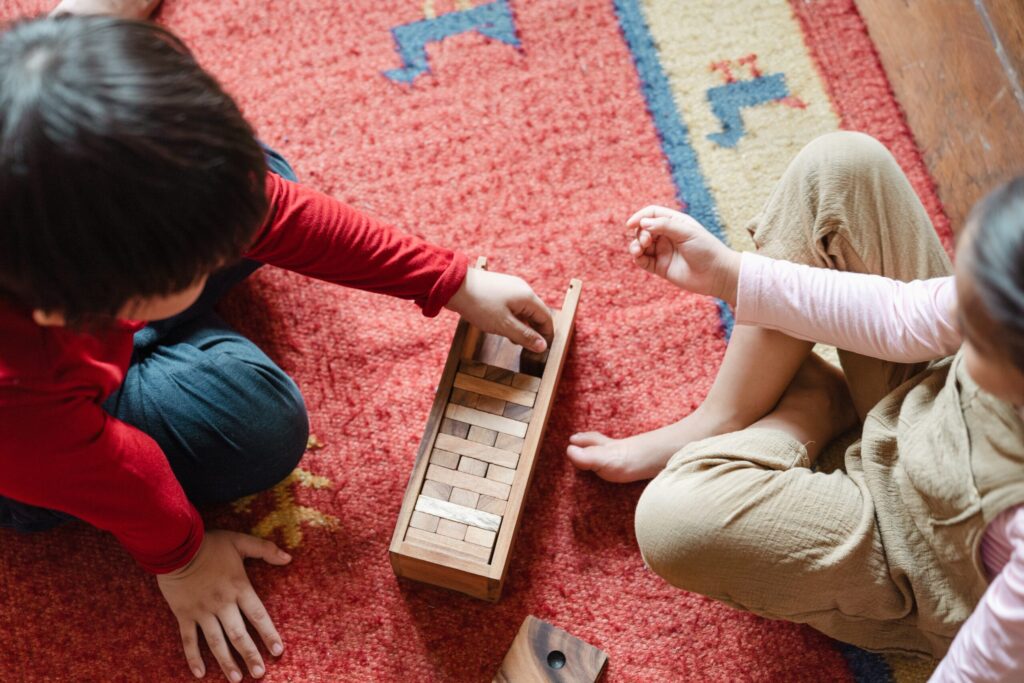No products in the cart.
All Blogs
Mastering the Art of Precision: Essential Tips to Improve Your Fine Motor Skills!
Developing fine motor skills is essential for individuals of all ages as it allows us to perform everyday tasks with precision and accuracy. Fine motor skills involve the coordination and control of small muscles in our fingers, hands, and wrists. From writing and drawing to playing instruments or even buttoning a shirt, having strong fine motor skills can significantly enhance our quality of life.
To improve these skills, it is important to practice activities that challenge our fine motor abilities, such as puzzles, threading beads, or using tweezers. With consistent practice and patience, anyone can develop their fine motor skills and achieve greater dexterity and control in their hands and fingers.
Understanding Fine Motor Skills and Why They Matter

Fine motor skills are the abilities that allow us to perform intricate and precise movements with our hands, fingers, and wrists. These skills are essential for carrying out everyday activities such as writing, typing, buttoning clothes, and using utensils. But, why are fine motor skills so important?
Firstly, the development of fine motor skills in children is critical for their academic success. The ability to hold a pencil and write legibly is fundamental in their learning process. Without well-developed fine motor skills, children can struggle with tasks that involve hand-eye coordination, precision, and attention to detail.
Secondly, fine motor skills are crucial for activities of daily living. They enable us to carry out self-care tasks such as brushing teeth, tying shoelaces, and dressing. Additionally, fine motor skills are essential in many occupations, such as dentistry, surgery, and hairstyling.
Finally, fine motor skills play a significant role in cognitive development. Research has shown that activities that promote fine motor skills can enhance brain development, language, and problem-solving abilities.
In conclusion, understanding the importance of fine motor skills is essential for both children and adults. By practicing activities that promote dexterity and hand-eye coordination, individuals can improve their fine motor skills and enjoy the benefits that come with it.
Fun and Engaging Activities to Boost Your Fine Motor Abilities

Fine motor skills are essential for completing everyday tasks such as writing, typing, and tying shoelaces. However, these skills don’t always come naturally to everyone, and some people may struggle with tasks that require precise hand and finger movements. Luckily, there are many fun and engaging activities that can help improve fine motor skills.
One activity that can help improve dexterity and hand-eye coordination is playing with clay or playdough. Rolling, pinching, and molding the material can strengthen the muscles in the fingers and hands. Plus, it’s a great way to let your creativity run wild.
Another fun activity is threading beads or pasta onto string or pipe cleaners. This activity requires precise hand movements and can help develop the muscles needed for tasks like tying knots or buttoning clothes.
Jigsaw puzzles, mazes, and coloring books are also great activities that can improve fine motor skills. These tasks require attention to detail and can help improve focus and hand control.
Finally, playing with small toys like Legos or building blocks can help improve hand-eye coordination and fine motor skills. Plus, it’s a great way to keep your hands busy and your mind engaged.
Incorporating these fun and engaging activities into your daily routine can help improve your fine motor skills and make everyday tasks easier and more enjoyable. So, get creative and start building those fine motor skills today!
Expert Strategies for Developing Dexterity and Hand-Eye Coordination

Dexterity and hand-eye coordination are essential skills required in many activities, such as sports, music, and everyday life. Developing these skills can enhance your performance and improve your overall quality of life. In this blog, we will discuss some expert strategies for improving dexterity and hand-eye coordination.
One effective way to develop dexterity and hand-eye coordination is through playing video games. Many video games require precise hand movements and quick reactions, which can help enhance your fine motor skills. Another way to develop dexterity is through the use of stress balls and hand grips. These exercises can help strengthen your fingers and improve your grip.
Practicing sports such as tennis and basketball can also help improve hand-eye coordination. These activities require the player to track a moving object and react quickly, helping to develop visual and physical coordination.
Incorporating hand-eye coordination exercises into your daily routine can also help improve your skills. For example, try catching a ball with one hand while tossing another ball with the other hand. This exercise helps improve your hand-eye coordination and reaction time.
Overall, developing dexterity and hand-eye coordination requires practice, patience, and persistence. By implementing these expert strategies into your routine, you can improve your skills and enhance your overall quality of life.
Incorporating Fine Motor Skill Practice into Your Daily Routine for Lasting Results

Fine motor skills are essential for performing everyday tasks such as writing, typing, and tying shoelaces. Incorporating fine motor skill practice into your daily routine can lead to significant improvements in these skills over time. Here are some tips to help you incorporate fine motor skill practice into your daily routine for lasting results:
- Start small: Incorporating fine motor skill practice into your routine doesn’t have to be a big undertaking. Start with small activities such as doodling or using tweezers to pick up small objects.
- Make it fun: Practice doesn’t have to be boring. Incorporate games and activities that make practicing fine motor skills fun and engaging. For example, try playing with playdough or building with blocks.
- Set a schedule: Schedule time each day to practice fine motor skills. This will help you establish a routine and make practicing a habit.
- Be consistent: Consistency is key when it comes to improving fine motor skills. Make sure to practice regularly, even if it’s just for a few minutes each day.
Incorporating fine motor skill practice into your daily routine can lead to lasting results. With a little bit of effort and consistency, you can improve your fine motor skills and make everyday tasks easier and more enjoyable.

